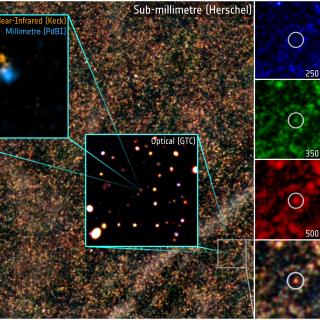Bibcode
Glenn, J.; Conley, A.; Béthermin, M.; Altieri, B.; Amblard, A.; Arumugam, V.; Aussel, H.; Babbedge, T.; Blain, A.; Bock, J.; Boselli, A.; Buat, V.; Castro-Rodríguez, N.; Cava, A.; Chanial, P.; Clements, D. L.; Conversi, L.; Cooray, A.; Dowell, C. D.; Dwek, E.; Eales, S.; Elbaz, D.; Ellsworth-Bowers, T. P.; Fox, M.; Franceschini, A.; Gear, W.; Griffin, M.; Halpern, M.; Hatziminaoglou, E.; Ibar, E.; Isaak, K.; Ivison, R. J.; Lagache, G.; Laurent, G.; Levenson, L.; Lu, N.; Madden, S.; Maffei, B.; Mainetti, G.; Marchetti, L.; Marsden, G.; Nguyen, H. T.; O'Halloran, B.; Oliver, S. J.; Omont, A.; Page, M. J.; Panuzzo, P.; Papageorgiou, A.; Pearson, C. P.; Pérez-Fournon, I.; Pohlen, M.; Rigopoulou, D.; Rizzo, D.; Roseboom, I. G.; Rowan-Robinson, M.; Portal, M. Sánchez; Schulz, B.; Scott, Douglas; Seymour, N.; Shupe, D. L.; Smith, A. J.; Stevens, J. A.; Symeonidis, M.; Trichas, M.; Tugwell, K. E.; Vaccari, M.; Valtchanov, I.; Vieira, J. D.; Vigroux, L.; Wang, L.; Ward, R.; Wright, G.; Xu, C. K.; Zemcov, M.
Bibliographical reference
Monthly Notices of the Royal Astronomical Society, Volume 409, Issue 1, pp. 109-121.
Advertised on:
11
2010
Citations
108
Refereed citations
97
Description
Dusty, star-forming galaxies contribute to a bright, currently
unresolved cosmic far-infrared background. Deep Herschel-Spectral and
Photometric Imaging Receiver (SPIRE) images designed to detect and
characterize the galaxies that comprise this background are highly
confused, such that the bulk lies below the classical confusion limit.
We analyse three fields from the Herschel Multi-tiered Extragalactic
Survey (HerMES) programme in all three SPIRE bands (250, 350 and 500
μm) parametrized galaxy number count models are derived to a depth of
~2mJybeam-1, approximately four times the depth of previous
analyses at these wavelengths, using a probability of deflection [P(D)]
approach for comparison to theoretical number count models. Our fits
account for 64, 60 and 43 per cent of the far-infrared background in the
three bands. The number counts are consistent with those based on
individually detected SPIRE sources, but generally inconsistent with
most galaxy number count models, which generically overpredict the
number of bright galaxies and are not as steep as the P(D)-derived
number counts. Clear evidence is found for a break in the slope of the
differential number counts at low flux densities. Systematic effects in
the P(D) analysis are explored. We find that the effects of clustering
have a small impact on the data, and the largest identified systematic
error arises from uncertainties in the SPIRE beam.
Related projects

Formation and Evolution of Galaxies: Observations in Infrared and other Wavelengths
This IAC research group carries out several extragalactic projects in different spectral ranges, using space as well as ground-based telescopes, to study the cosmological evolution of galaxies and the origin of nuclear activity in active galaxies. The group is a member of the international consortium which built the SPIRE instrument for the
Ismael
Pérez Fournon